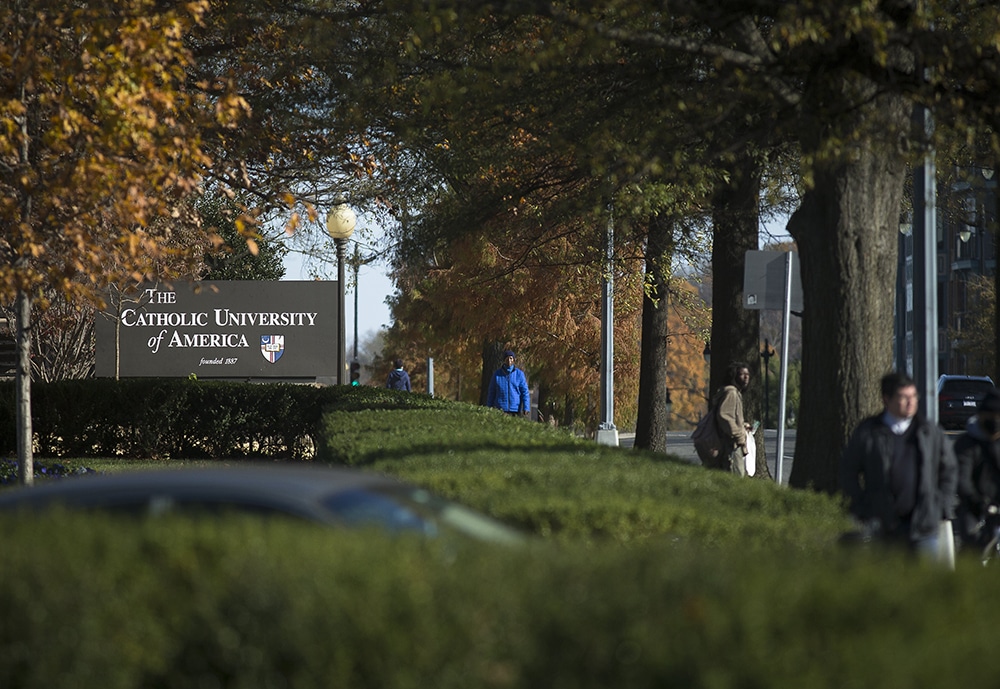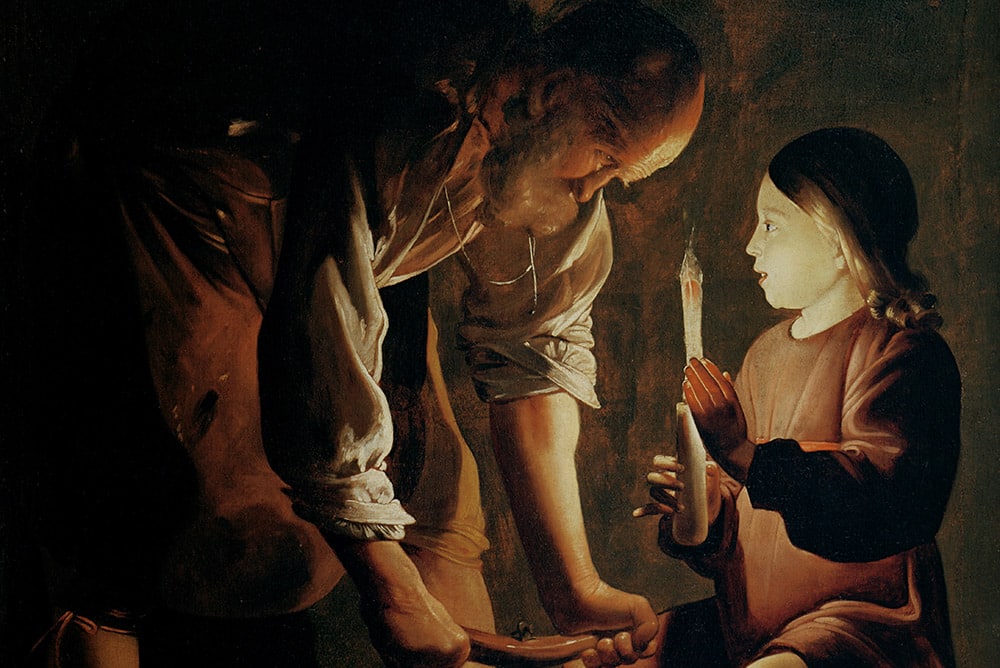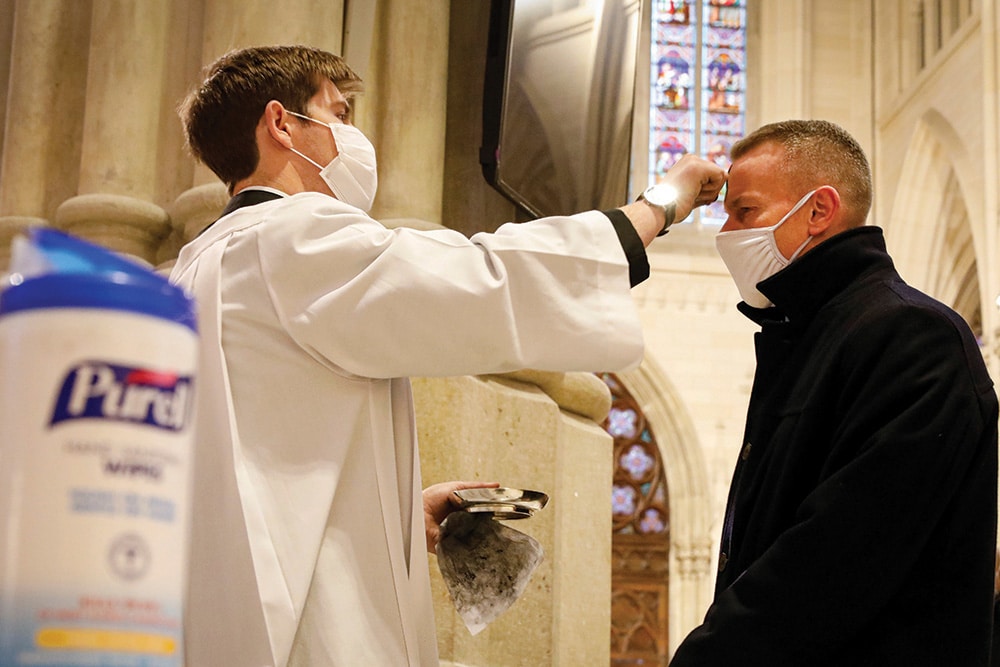Ever since I was a boy, my mother told me I was an “old soul” — “wise beyond my years,” she would say. In high school and college, I was every diocesan youth ministry office’s dream. A young man who was comfortable sitting at the table with priests and bishops, sharing very eloquently and confidently about how I was the Church of not only tomorrow but today.
Then one day, while sitting at one of those tables surrounded by Church leaders, I heard another young man begin his eloquent comments with “As the youngest person here. …” At the next break, I confidently approached my peer and challenged him on his assertion. “I’m 25,” he said, “how about you?” He thought I choked on the coffee I was drinking but really it was the fact that I was pushing 37. Later, in my chiropractor’s office, I noticed that the prime ministers of several countries were younger than me, and suddenly, I was no longer an old soul. I was just old.
Read more Catholic College special section articles here.
The future comes fast, and while we old people like to talk about the future a lot, are we really working for the next generation now? Are those efforts bearing fruit? On the surface our research at Catholic Leadership Institute and others would offer a resounding “no,” but as I look deeper, there are more signs of hope and plenty of opportunity that we might not see at first glance.
Moving in a new direction
It is undeniable that we have been on a sacramental free fall for three decades. One in 5 children who are baptized will not receive their first holy Communion, 2 in 5 will not make their confirmation, and by all accounts, we can expect about 85% of our youth and young adults to stop the practice of the Faith by age 21.
And my friends, that’s exactly the problem. We are simply expecting it. As I travel around and speak to groups of priests or parish councils, I hear a common phrase that sends shivers down my spine. I often hear, “We have lost a generation.” What these extremely well-intentioned leaders are accurately acknowledging is that our lack of evangelization and formation of parents and youth has contributed to those stark declines I referenced. My shiver comes not from this reality but from the tone and phrasing of the reality. To my knowledge, the world hasn’t ended, nor have all the youth and young adults evaporated. They are right in front of us. We haven’t lost them. Perhaps we’ve given up on them?
If I’m sounding preachy, it’s because I’m trying to preach. I’m trying to preach because while my work highlights all manner of depressing realities, as I probe deeper, there are tremendous opportunities, if we seize them. Now at first glance, they might not sound like opportunities but stay with me.
No. 1: Ignorance is not the same as rejection. It is true that many of today’s parents and young adults have not grown up in what we could call a “culturally Catholic” home. As Church leaders, we often lament this fact. I see it as an opportunity. In many cases, today’s young adults have never had an authentic encounter with the Faith. In leadership, I always think it’s easier to start with a blank sheet versus trying to change a narrative. We can repropose the Gospel in an authentic, engaging way through new means and new methods that show why the Lord is present in their lives right now when they are beginning to ask some of life’s big questions. This is a key reason why our Catholic colleges and universities, as well as apostolates and ministries focused on outreach, are so important in the fabric of our Church. As the next generation is being challenged to see the world through the lens of professors and peers, to the extent the Catholic ethos imbues both, we can create fertile conditions for meaningful moments of encounter exactly at the time they need them most.
No. 2: The next generation doesn’t want their parents’ parish. Young adults do want community. Even for those who practice devoutly, our research indicates that they tend to be “roamin'” Catholics. They travel to different churches to worship, and they build para-parishes in their neighborhoods and social networks. This dynamic complicates and challenges the current parish parameters. Where do they drop their envelope? How do we store their records? I think it also may present some interesting possibilities. How could four or five parishes canvas their area for the next generation together? What innovative ways can we adjust the schedules and strategies by pooling our human and financial resources? It is difficult for one pastor to be all things to all people; perhaps they don’t need to be. Perhaps three pastors working together can be force-multipliers for each other.
No. 3: We won’t see the results. At least for this old guy, I don’t seem to develop more patience with every year that passes. When it comes to outreach and evangelization of the next generation, we are playing the long game, but we need to start playing it right now. I can’t tell you how many initiatives are cut or discontinued prematurely because they are deemed either ineffective or nonessential. As a leadership consultant, I think constant assessment and refinement of strategies is essential. If something is ineffective, it should be stopped. But are we measuring effectiveness with the right metrics? Do we even know what are realistic and relevant metrics for engagement of this generation?
We cannot wait
Crowds and cash, while helpful, may not be the place to stop — or even to start — when looking for fruitfulness. “For where two or three are gathered in my name,” the Lord tells us (Mt 18:20). Are we willing to fund two or three? Can we embrace the patience and sustain the investment for two or three to become four or six? Perhaps we need to spend less time bemoaning what isn’t and learn more about all that is — and why it is. Why are we seeing upticks, however small, in vocations? What parishes have the most marriages or inquiries to the religious life? Why? So often, our desire to be successful can complicate and stunt our effort to be faithful. Can we focus on planting and leave the sowing to the Lord?
That’s why our colleges and universities are such important fields for sowing right now. Leadership is not just about skillset; it’s about mindset, too. The mindset of the next generation’s leaders will be formed either by chance or by intention during those four-plus years. Without being able to assume that they grew up in a strong domestic church, colleges and universities have a unique responsibility to not only till fertile soil but, more and more, lay out a field and start fresh. Centers of learning have the space, expertise and privileged position to propose all manner of concepts, frameworks and worldviews. To the extent they can propose the Gospel with the same rigor and elevate Catholic tradition and scholarship as the treasure that it is to a generation looking to be challenged, the return on that investment will be literally out of this world.
According to any study you read, what young adults want, the Catholic Church has in spades. They want authenticity. They want relationship. They want impact. This is the Church. The challenge is that for many reasons, those of us in Church leadership roles fail to speak to this identity. We do what so often this old guy does with my kids; we say, “I’ll tell you about it when you’re older.” Sometimes we defer because we think they aren’t ready for leadership. They need to learn more, experience more, live more before they can have a seat at the table. Sometimes it’s because we are too busy or distracted by our daily emergencies or demands. We can’t see past today. And sometimes, it’s because we ourselves, deep down, don’t feel confident in what we are doing and can’t imagine trying to form or prepare others to do it.
We can’t wait until they are older. We can’t wait until it’s convenient. We can’t wait until we have it all figured out. We have only lost a generation if we decide we have given up on them. Make no mistake, the next generation is out there. They crave, more than any generation, what only the Lord gives through his Church. And today, not tomorrow, they are making life-defining decisions about what’s important to them and who they will become. The time for the next generation is now, and the dividends from investing in them today will create a windfall for the future.
Daniel Cellucci is CEO of Catholic Leadership Institute, an apostolate providing leadership training and consulting to more than 250 bishops, 3,500 priests and over 25,000 deacons, religious and lay leaders in more than 100 dioceses.







